The University of Chicago Press, Chicago 60637
The University of Chicago Press, Ltd., London
2018 by The University of Chicago
All rights reserved. No part of this book may be used or reproduced in any manner whatsoever without written permission, except in the case of brief quotations in critical articles and reviews. For more information, contact the University of Chicago Press, 1427 E. 60th St., Chicago, IL 60637.
Published 2018
Printed in the United States of America
27 26 25 24 23 22 21 20 19 18 1 2 3 4 5
ISBN -13: 978-0-226-57654-1 (cloth)
ISBN -13: 978-0-226-57668-8 (paper)
ISBN -13: 978-0-226-57671-8 (e-book)
DOI : https://doi.org/10.7208/chicago/9780226576718.001.0001
Library of Congress Cataloging-in-Publication Data
Names: Ibson, John, author.
Title: The mourning after : loss and longing among midcentury American men / John Ibson.
Description: Chicago ; London : The University of Chicago Press, 2018. | Includes bibliographical references and index.
Identifiers: lccn 2018000557| isbn 9780226576541 (cloth : alk. paper) | isbn 9780226576688 (pbk. : alk. paper) | isbn 9780226576718 (e-book)
Subjects: LCSH: MenUnited StatesHistory20th century. | MasculinityUnited StatesHistory20th century. | Male friendshipUnited StatesHistory20th century. | HomophobiaUnited StatesHistory20th century. | Homosexuality and literatureUnited StatesHistory20th century. | Burns, John Horne, 19161953AppreciationUnited States. | Vidal, Gore, 19252012AppreciationUnited States. | American literature20th centuryHistory and criticism. | United StatesSocial life and customs19451970.
Classification: LCC HQ 1090.3 . I 27 2018 | DDC 155.3/320973dc23
LC record available at https://lccn.loc.gov/2018000557

This paper meets the requirements of ansi/niso z39.481992 (Permanence of Paper).
Its hard to say exactly when work on this book started. I began research and writing with a book like this in mind over a decade ago, and Ive received a lot of help that I want to acknowledge.
I refined some of my ideas on mens relationships, the Second World War, and the significance of everyday photographs through presentations at several scholarly gatherings, such as The Photograph: An International Interdisciplinary Conference at the University of Manitoba in 2004, at which cordial conversations with Nancy Martha West were especially valuable; North American Sexualities: Post World War II at the University of Massachusetts, Amherst, in 2004, at which conversations (and a delightful dinner) with Kathy Peiss were memorably encouraging; Vernacular Reframed: An Exploration of the Everyday at Boston University in 2004, where Alan Trachtenberg yet again treated me to his wisdom, generosity, and good company; Groundwork: Space and Place in American Cultures, the American Studies Associations 2005 national convention, where delivering a paper alongside my friend and colleague in studying masculinity, Jay Mechling, was a highlight; Symposium on the Art of the American Snapshot, at the National Gallery of Art in 2007; and Feeling Photography at the University of Toronto in 2009.
Closer to home, I presented some plans and findings for this book to my departments Graduate StudentFaculty Colloquium in 2012. The American Studies Department at California State University, Fullerton, has been my professional home throughout an academic career that now is well over four decades long, with those years indeed flying by because I was having such a good time. Working alongside talented, dedicated department colleagues has improved this book and enriched my life in countless large and small ways. The university helped the book greatly with a sabbatical leave in 2012 and a lightening of my course load in 2013, supported by Fullertons Faculty Development Center.
By far the greatest professional satisfaction from my careers earliest days to this moment has come from being with students. This book surely is better immeasurably from the knowledge, perspective, and engagement that teaching has brought my way. To identify students whose company, even lasting friendship, Ive especially treasured would be a delightful task, but while I might know where to begin this list, deciding where to stop would be beyond me. I must, though, single out the extremely valuable help I received from two graduate research assistants, David Donley and Judson Barber, and from the outstanding teaching assistants I had while working on this book: Matt Nelson, Tim Schneider, Rich Morales, Heather Andrews, Nathan Kuntz, Emily Starr, Alicia Limon, Manny Sanchez, Adam Vasquez, Patrick Heyer, David Donley, Joseph Meyer, Mike West, Casey Ratto, Danny Juarez, Katya Kuzmina, Paula Beckman, Judson Barber, Jasmin Gomez, and Kai Lisoskie. Manny, Judson, and Kai, I must add, were more like my coteachers than assistants.
The world would be a better place if the rest of us were as generous and committed to knowledge as most librarians and archivists. Helping greatly with my research for this book were Alexander N. Rankin, assistant director of acquisitions, and Laura Russo, manager of public service and donor relations, Howard Gottlieb Archival Research Center at Boston University; AnnaLee Pauls, Rare Books and Special Collections, Princeton University; Heather Cole, assistant curator of modern books and manuscripts, Houghton Library at Harvard University; Paige Roberts, archivist and head of special collections at Phillips Academy; Karen Parsons, archivist at Loomis Chaffee School; Rebekah Kim and Joanna Black, managing archivists at the GLBT Historical Society; Brenda J. Marston, curator, Human Sexuality Collection and head of research services, and Hillary Dorch Wong, reference coordinator, Division of Rare and Manuscript Collections at Cornell University. My research both at Cornell, for which I received a generous Phil Zwicker Memorial Research Grant, and at the GLBT Historical Society was mostly related to what I hope will be a soon-forthcoming book about particular male couples and single men during the mourning after.
I am grateful to the late Gore Vidal for agreeing to an interview, and to Fabian Bouthillette for arranging that event as well as for later conversations over lunches and a hike. Susan J. Searles, legal administrative assistant at Burns and Levinson LLP, was friendly and efficient in arranging my interviews with Thomas Burns. Getting to know Tom not only became a crucial element of my research but was also one of the more delightful experiences of my entire life. He was a world-class raconteur, a generous host at lunches, a highly distinctive driver on the challenging roadways (and sidewalks) of greater Boston, a wonderful guide to the city of Andover and the campus of Phillips Academy, and a person of rare insight about matters ranging from Massachusetts politics to the joys and burdens of family ties. After his death, it was my great pleasure to share with Toms daughter Wendy Conquest my high regard for her father and the profoundly moving way he had expressed to me his love for his children.
On another visit to Andover, I got to spend time with Tony Rotundo, a leading historian of American men whose knowledge is as abundant as his good nature, and with his spouse, historian Kathleen Dalton. Enjoyable and instructive as well was my correspondence with journalist David Margolick about his own work on John Horne Burns, and with my friend Bob Young of Quinnipiac University about his fascinating study of mens attachments in midcentury America. Correspondence with Mike Messner, eminent scholar of American masculinity, was especially pleasant and encouraging. The sudden deaths of Clark Davis in 2003 and Peter Hales in 2014 devastated those of us who had the tremendous good fortune of having those guys as our friends. Clark was a young scholar of mens history, already accomplished and overflowing with promise; Peter, a remarkably young-at-heart expert on seemingly everything, in particular the history of photography and of postwar America. I would have loved to have discussed this book with each of them, and it surely would have been better for that experience.

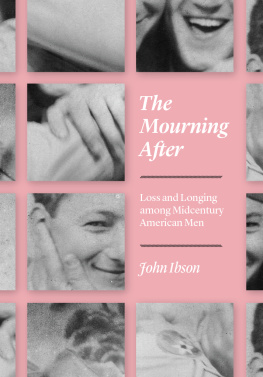

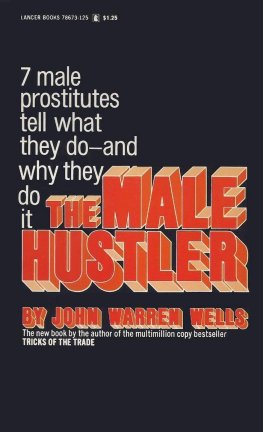
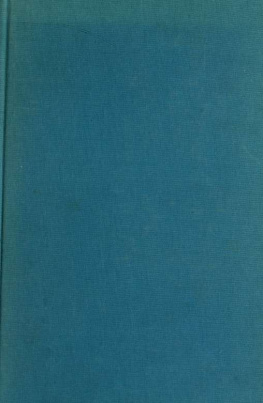
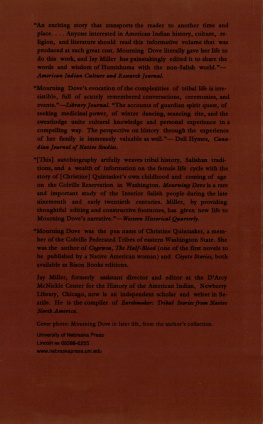
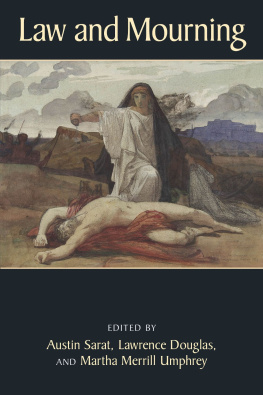
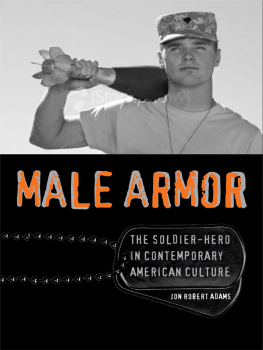
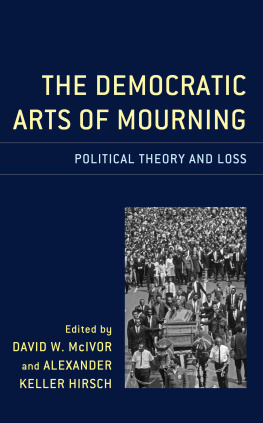
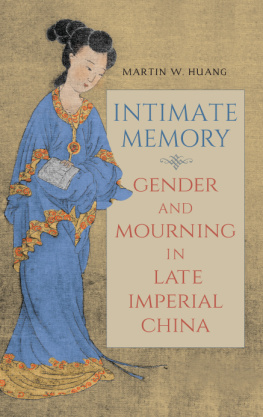
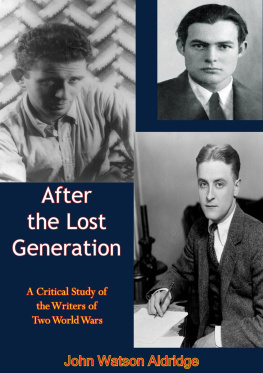
 This paper meets the requirements of ansi/niso z39.481992 (Permanence of Paper).
This paper meets the requirements of ansi/niso z39.481992 (Permanence of Paper).